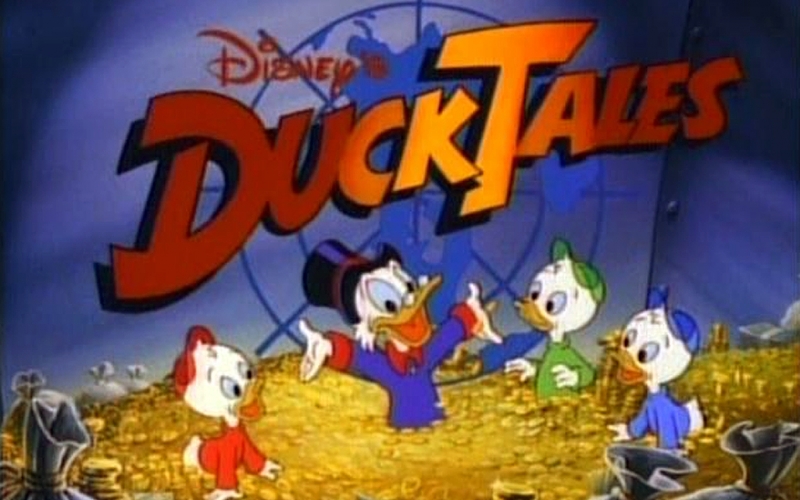Last updated on September 25, 2013

I had a conversation on the GameChurch City about our possible Game of the Year for 2013. As usual, my picks aren’t in the mainstream of public opinion, but since when did they ever fit there? I picked Metal Gear Rising: Revengeance and/or Ducktales: Remastered, and though I rated the latter more than the former, I’m thinking MGR:R will pull ahead in my ranking. Mostly it comes down to “which game actually came out this year”, and while Ducktales might fit into my best video games of 1989, giving Ducktales the spot seems highly unfair. Thus does it go to MGR:R for the present moment. In fact, that’s about the only game I played this year that came out this year. Everything else I saw did not interested my mechanics-minded brain enough to purchase for full price. After twenty dollars of MGR:R DLC (Jetstream Sam = good, Blade Wolf = not so much), there’s not much else I’m willing to dump sixty dollars to play.
Of course, most video gamers, myself included, are an opinionated bunch, so when GameChurch Editor-in-Chief Drew Dixon remarked that “he didn’t get the appeal of Ducktales Remastered”, I had to respond. It’s an NES game remade into what it was supposed to look like back in the day. Wonderful jumping physics (the pogo is awesome to master, for all its little idiosyncracies), great level design, excellent music, difficulty’s tough but fair. The nostalgia factor doesn’t hurt either, but I can see why it wouldn’t appeal to some people. To which Drew said “nostalgia is overrated”.

Now, I realize there’s a common refrain now to say that the past wasn’t actually as good as the present, and that video game actually progressed upward in that timeframe. Whether by narrative potential or graphical prowess, all these things prove true, but mechanically nothing’s changed. Adventure games still require exploration and searching, even if they take place in the first person perspective; action games usually requiring disposing a host of enemies, and rarely did anything change in three dimensions since Wolfenstein 3D arrived in 1992, other than adding additional layers. For me, then, part of the “evolution” of video games appears a bust, transforming them from…games (yeah, I went there) to interactive movies – not exactly my idea of a fun time. If anybody remembers FMV games from the 1990s, you know what I mean: it’s just the storytelling that improved, not the game underneath. My reasons aren’t nostalgic primarily, but I cannot help but say that Ducktales Remastered lights that fire in me.
I get why someone perceives this as a hearkening for “nostalgia”, but what exactly do we mean by that word? There’s two senses to it, one positive and one not, meaning that we often confuse the two together. The first meaning uses the word to describes a sentimentality for the past, typically for a period or place with happy personal associations. When I play old video game that were part of my childhood, for example, I feel a sense of nostalgia (distinguished from simple reminiscing, which doesn’t involve the senses – just your brain). It’s a good feeling invoked by the various senses of our body to remember the past and understand it. Now, there’s always the danger of idolizing the past (because it’s now in our memory bank rather than reality), but nostalgia’s rarely used by that in day to day life. More often than not, nostalgia allows us to provide context for both the past and where we are now. Nostalgia brings both sorrow and joy in equal measure, a longing for the past and an understanding of the present.
Many people use nostalgia at times of great duress or stress, and it’s not simply a daydream. We look back to a time when things were, happy or sad, rather different. But those experiences do, in some sense, mold who we’ve become and why we change into the person we turned into today. Most nostalgic memories place us at the center of a story among close friends, and whatever the circumstances of the case, we learned something from the experience. Again, the purpose isn’t to merely daydream or reminisce, but remember a time (rightly or wrong) in the context of your life. That helps us to understand where we’re going and learning from life. Dr. Constatine Sedikides, a clinical psychologist in research associated with the phenomenon, says as such:
Many other people have defined nostalgia as comparing the past with the present and saying, implicitly, that the past was better — ‘Those were the days.’ But that may not be the best way for most people to nostalgize. The comparison will not benefit, say, the elderly in a nursing home who don’t see their future as bright. But if they focus on the past in an existential way — ‘What has my life meant?’ — then they can potentially benefit.
Often, we perceive nostalgia in a comparative context, as if the past were better than the present – that’s an obvious misnomer. In conversation and debate, nostalgia transforms into this, for we can’t convey our personal nostalgic impulses in the same way. That, in fact, is where we emerge into the problematic form to which we associate nostalgia. When we compare “the past” as it existed in our idealized vision to reality, and then impose that reality upon others, “nostalgia” becomes a might large problem. Sometimes we associate a critical examination of the thing we loved as an attack, and we attack in turn. As Ecclesiastes 7:10 would say:
10 Do not say, “Why is it that the former days were better than these?” For it is not from wisdom that you ask about this.
Unfortunately, our modern understanding comes more from prejudice of the early psychologists than it does the positive attributes. First “discovered” as a disorder among Swiss mercenaries in the late 17th centures, it was described as “Swiss illness” and “homesickness”. That negative associations stayed throughout the next three centuries (heck, they tried to find out the cause of nostalgia in Civil War soldiers!). Even as the search for the “nostalgia bone” failed, most considered it a negative emotion. That’s simply not true – it’s the way in which we approach it that turns the whole experience negative. Sounds like a lot of things in life, doesn’t it?
To take a Christian approach, remembering the past and seeing other people’s experience help us to compare the Biblical character to ourselves. We see, and perceive, that they were not perfect, just as we were not perfect – but everyone lived in a state without sin before the Fall. Christian nostalgize in two positive senses: both to a time before sin, and a time where Christ returns and sin will disappear once and for all. As for the present moment, we wait in a continual desire for Jesus’ return. Why do we do this? We rest upon God’s promises: we compare what God did in the past even in times of sorrow, and we continue to rely upon God’s infallible Word as our guide. Hebrews, a book literally devoted to this subject, tells us as such in chapter 3:
12 Take care, brethren, that there not be in any one of you an evil, unbelieving heart [c]that falls away from the living God. 13 But encourage one another day after day, as long as it is still called “Today,” so that none of you will be hardened by the deceitfulness of sin. 14 For we have become partakers of Christ, if we hold fast the beginning of ourassurance firm until the end, 15 while it is said,
‘Today if you hear His voice, do not harden your hearts, as when they provoked Me.’
16 For who provoked Him when they had heard? Indeed, did not all those who came out of Egypt led by Moses? 17 And with whom was He angry for forty years? Was it not with those who sinned, whose bodies fell in the wilderness? 18 And to whom did He swear that they would not enter His rest, but to those who were disobedient? 19 So we see that they were not able to enter because of unbelief.
Our beliefs literally hinge on past events, one to which we weren’t even eyewitnesses. And, as any student of philosophy will tell you, eyewitness accounts remain notoriously inaccurate! Faith almost exists as a sort of nostalgia; Christians, as you know, should constantly believe in the power of optimism, for God promises much and He is the same yesterday, today, and forever (Heb. 13:18). So we nostalgize all the time, both about an ideal past and a relevant hope, a “future nostalgia” as I like to call it (eschatological might fit better, but that’s a big word). That’s a far better meaning to “nostalgize” than just judging it from the outset from a variety of societal forces. I will continue to enjoy my Ducktales, thanks! And not in a comparative way, but in a way that gives me hope for the future.
